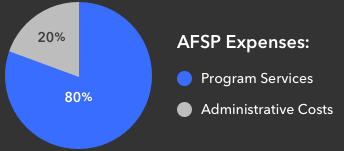In June 2020, the global pandemic was only a few months old. Alex had just finished his sophomore year at the University of Nebraska at Lincoln and was taking a few remote classes to get ahead. The warm weather offered a welcome respite from the drudgeries of avoiding COVID, allowing for socially responsible gatherings and escapism. Despite the challenges living with COVID presented, the household was one of joy, contentment and surprising energy. Alex was looking forward to his junior year and his selection as a Clifton Strengths coach for the College of Business (he was one of only 42 who made the cut), and he talked openly about his future. Then came the day of June 12.
Except for treating his dad to his favorite breakfast, the day started like any other. Pleased by his efforts, he then announced he was going on a long bike ride. “Don’t worry,” he said. Alex was saying goodbye. He was only 20 years old.
For many, Alex’s story starts and ends with his well-documented suicide over his online trading account. But these media narratives can’t and shouldn’t define Alex or the life he led. Those who knew Alex described him as selfless and big-hearted, always thinking of others before himself. And it was these qualities -- along with his ever-present smile and sense of humor -- that made him so endeared by all. Despite enjoying meaningful and loving relationships with family and friends, and a stable home environment, Alex chose to take his life. If only he had understood his impact on others and true worth as a human being.
Nobody saw Alex’s suicide coming, which is why real and open conversations about mental well-being and suicide are so important. In hindsight, there were signs, of course. Alex demanded so much of himself and took his perceived failures too hard. Needless to say, perfection isn’t achievable by anyone.
Fiercely independent and private, Alex resisted reaching out for help after finding himself in a situation he couldn’t handle emotionally, and he panicked in response. In his suicide note, Alex indicated as much, even stating that he didn't want to die. But in his mind, he had burdened his family with a financial hardship of epic proportions. Tragically, the situation wasn’t what it seemed.
Treating mental health shouldn’t be taboo, yet the stigma surrounding it prevents those suffering from seeking treatment. Learning the warning signs and risk factors is vital to saving lives. Alex’s suicide should’ve never happened. Depression is treatable. Life skills and coping mechanisms to adapt and deal effectively with life’s demands work. Suicide is preventable.
In the spirit of his kindness, you can honor Alex’s legacy through this AFSP campaign by clicking the DONATE button above or Alex's Memorial Fund. Either way, your contribution will make a difference in the lives of those struggling with thoughts of self-harm, turning their stories of desperation and loneliness into ones of hope and redemption.






Spread The Word
https://supporting.afsp.org/campaign/Alex-E--Kearns